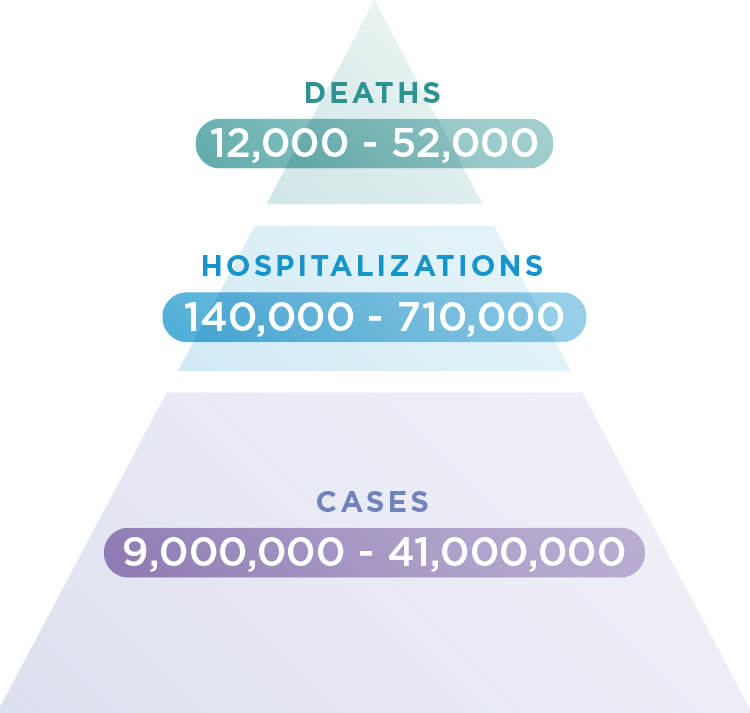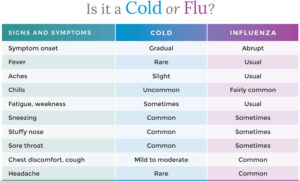FLU FACTS
What is Flu?
Influenza or “flu” is a highly contagious viral infection of the respiratory tract (nose, throat and lungs) that can cause mild to severe illness, and can result in complications that can lead to hospitalization or death.

Influenza is one of the deadliest vaccine-preventable diseases in America.
How serious is the flu?
Between 2010 and 2020, the CDC estimates that influenza resulted in:
- 9 Million – 41 Million Illnesses
- 140,000 – 710,000 Hospitalizations
- 12,000 – 52,000 Deaths Annually
While most people who get flu will recover in a few days to less than two weeks, some people will develop complications as a result of flu which can be life-threatening and even result in death.

The flu can be serious, even deadly, for anyone – regardless of age or health status.
Everyone is at risk for being infected with the influenza virus, and anyone can spread the disease to others.

Each flu season, between 5 and 20 percent of the U.S. population is infected with the flu virus, and approximately 8 percent experience flu illness.1
What are common flu symptoms?*

Fever

Headache

Fatigue or Extreme Tiredness

Muscle or Body Aches

Dry Cough

Sore Throat

Runny or Stuffy Nose
Nausea, vomiting, and diarrhea are symptoms more common in children.
It’s important to know when to seek medical attention and ask for a flu test. Find out when you should seek medical attention here.
How is flu spread?
Flu spreads from person-to-person when people cough, sneeze, talk, or when a person touches a surface or object that has the flu virus on it and then touches their own mouth or nose.
Flu is not just a bad cold.
The flu is often confused with the common cold, but flu symptoms tend to develop quickly - usually one to four days after a person is exposed to the flu virus. Symptoms are usually more severe than the typical sneezing and congestion associated with the common cold.

While everyone is susceptible to flu, it is especially dangerous for the following people:
Children younger than 5, but especially those younger than 2
People of all ages with health conditions

How long do flu symptoms last?
In most adults, an uncomplicated illness with flu can last about three to seven days, with periods of limited activity and bed rest. However, some symptoms such as a cough may linger as long as two weeks. Flu-related complications can also prolong the illness.3
When is someone contagious with flu?
An individual is typically contagious 24 hours before flu symptoms develop, which means that people are often unknowingly spreading illness before they even realize they are sick.
They remain infectious for up to five to seven days after symptoms first appear. So even if an individual is feeling better, they can still be spreading the influenza virus to others. It is also believed that children can remain infectious longer, until all their symptoms resolve.
People with flu are no longer contagious after 24 hours without a fever and without the use of fever-reducing medications.
Visit these other pages to learn more:
Page last reviewed: November 2021.







